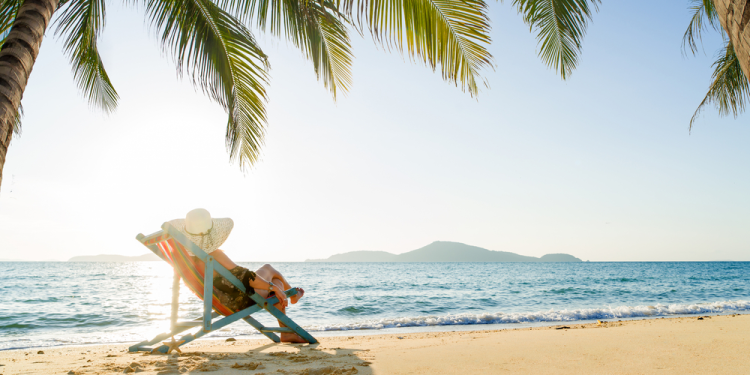
Island life is what probably many of us have been dreaming of. So you've finally given the good news to your friends and family and some perhaps even envy you for having that relaxed lifestyle they have been craving for : beautiful beaches with the sun all year long. Usually people, especially those who have spent their whole lives in a big city, have a lot of misconceptions about living on an island. Expat.com breaks the most common myths about island life.
Days are spent at the beach

“How come you're so pale if you live on an island?” This question should with no doubt sound familiar to you if you've recently had a trip back home or you've been receiving visits from your family or friends in your new country. Many tend to assimilate island life to spending days at the beach and sipping a cocktail under palms trees. While this may be true for digital nomads having chosen to work location-free, it is not the case for foreign professionals, entrepreneurs or students. Most expats are likely to move to island for a more relaxed atmosphere, a slower pace of life, a warmer climate to escape cold winters in Europe or North America, and quality of life. But if you're moving for new career prospects, you will be spending the whole week at work while awaiting weekends and bank holidays to see more of your host country. Additionally, while it's true that most tropical islands have a warm and sunny climate, keep in mind that natural disasters such as cyclones usually occur in the summer.
Life is cheap

It's a common belief that living on an island is much cheaper than living in a big American or European city, for example. While the cost of living is more affordable in general, it might not be the case for most islands, even if you're earning dollars or euros. In Reunion Island, given that the euro is the local currency, you might not be able to support yourself, visit places, and eat out often on a tight budget. To be honest, your cost of living will mainly depend on your lifestyle. In Mauritius, for example, renting a modern flat with all facilities including air conditioning and a dishwasher can be quite expensive. Also, when shopping, you bill will definitely rise if you choose to buy most imported stuff like food, drinks, clothes, etc. Eating out once a week and buying fresh local produce can be a good idea if you would like to put some money aside.
There is no internet

Gone are the days when we used to send postcards once or twice a year to our family members. But since you're moving to an island, some of your friends perhaps still believe that you won't be able to keep in touch since you won't have internet on your remote island. People living in big cities often tend to compare islands to remote areas with no internet – which obviously is not true ! Many islands, close to Africa or in the Asia-Pacific region, are developing countries, which means that they have a modern and developed infrastructure and offer all necessary amenities for expatriates. If you've moving with your family, it should not be difficult to find an international school for your kids and quality health care. Needless to say that these islands are full of opportunities in all aspects including career, education, entrepreneurship, transport, leisure, etc. Even the most remote islands provide internet and wifi even if it's slower than what you would have prefered. So why send a postcard when you can simply keep in touch with your friends and family back home and share your beautiful pictures on social networks and other online communication tools?
Islands are tax havens

Being called a tax haven is more a critic than a compliment and this is what many island have been struggling against, to stay in the good books of international organisations. Moving to an island to work, set up a business or retire doesn't mean escaping tax. This is why expats are advised to inquire on any double taxation treaty between their home and host countries before moving. Ideally, some islands have a flexible tax system from which expats can benefit. Keep in mind, however, that different types of taxes, including value added tax or property tax if you have chosen to buy a home, can also apply. In case you're planning to import your car, extra charges can also apply.
A laidback lifestyle

If you're looking to relocate on an island, noisy, bustling and hectic big cities will soon be a long-lost memory. Most islands are known for their laidback lifestyle. However, don't expect to find locals in shorts and flip-flops along the beach all day long. While some of them may be entrepreneurs or simply trying to earn their living, others will be at the office, like you. If you come from a big city, you might get frustrated by the slower pace of life, especially when it comes to local administration and bureaucracy. On some islands, Friday afternoons are a lot more quiet when some communities get the call for prayer. On others, offices become empty for almost half an hour around 2 or 3pm for the tea or coffee break. What could seem like idleness to you is rather part of the local culture and island lifestyle.



















